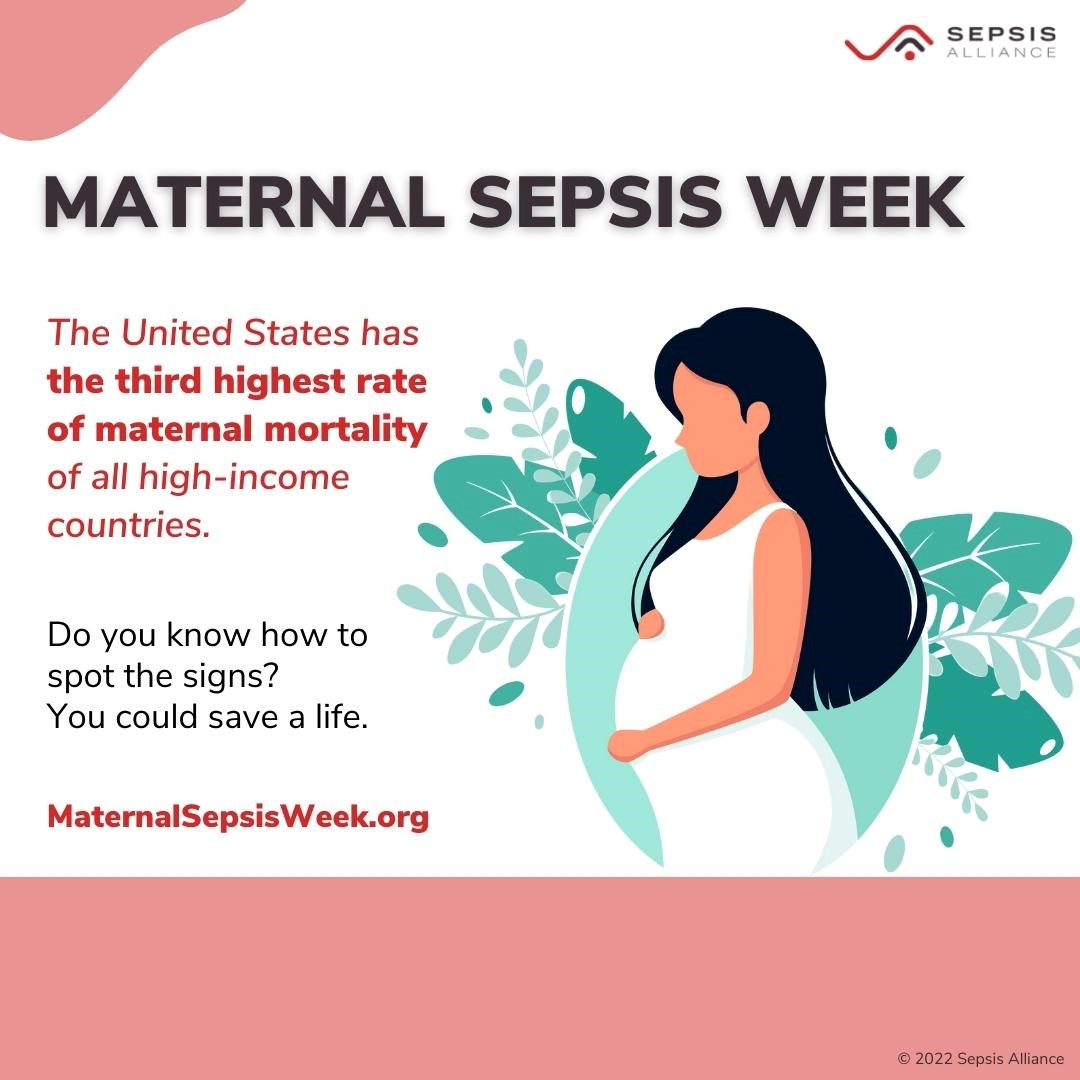
May 14th to May 20th.
Maternal Sepsis Fact Sheet
Definition:
- Sepsis is the body’s overwhelming and life-threatening response to infection, which can lead to tissue damage, organ failure, and death.
- According to the World Health Organization maternal sepsis refers to sepsis that results from infection during pregnancy, childbirth, post-abortion, or postpartum period.
Who it Hurts:
- While sepsis is an equal-opportunity killer, impacting the sick, the well, and people of all ages, some groups are more likely to be affected.
- These include very young children, older adults, those with a weakened immune system, racial and ethnic minorities, and lower income individuals and families.
Prevention:
- The risk of sepsis can be reduced by preventing or quickly identifying and managing infections.
- This includes practicing good hygiene, staying current with vaccinations, and seeking treatment when infections are suspected.
Treatment:
- Sepsis is a medical emergency that requires urgent attention and rapid treatment for survival.
- Sepsis can be treated and, in many instances, lives are saved by using existing and proven protocols.
Recovery:
- Many individuals fully recover from sepsis, while others may have long-lasting effects, such as amputations or organ dysfunction, like kidney failure.
- Other after-effects of sepsis are less obvious, such as memory loss, anxiety, or depression.
Symptoms:
When it comes to sepsis, remember It’s About TIME:
T – Temperature - higher or lower than normal
I - Infection – may have signs or symptoms of infection
M – Mental Decline - confused, sleepy, difficult to rouse
E – Extremely ill – “I feel like I might die,” severe pain or discomfort
Maternal Sepsis Facts
- The U.S. has the third highest rate of maternal mortality of all high-income countries, with an estimated 2.6 maternal deaths per 10,000 live births.
- In the U.S., Black women are 3.3 times more likely to die from pregnancy-related causes.
- American Indian and Alaskan Native women 2.5 times more likely, than white women.
- Maternal sepsis is estimated to complicate 10 cases per 10,000 live births in the U.S.
- Sepsis causes at least 261,000 maternal deaths every year worldwide, accounting for approximately 11% of all maternal deaths.
- Globally, maternal sepsis is estimated at 5.7 million cases each year.
- Sepsis in pregnancy is associated with an increased risk of preterm birth, prolonged recovery, stillbirth, and maternal death.3 A recent study found that maternal sepsis was associated with more than 6 times the risk of infant death compared to birth outcomes of healthy mothers.
- Black maternal patients have more than twice the risk of severe maternal sepsis as compared to their white counterparts.